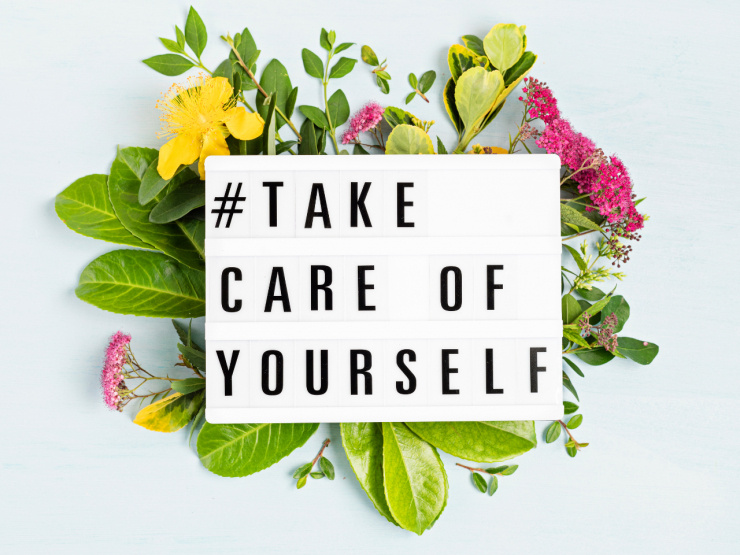The Art of Self-Care
In the hustle and bustle of our busy modern lives, where we seem to always be on demand and time feels limited, most of us are guilty of often overlooking a crucial aspect of our overall well-being, self-care. Self-care isn't just about indulgence or luxury; it's a fundamental practice that enhances our physical, mental, and emotional health. Join us as we explore the significant impact of neglecting self-care, and how self-care can greatly nurture our wellness, and we share with you some of our favourite practical examples of self-care practices that you can adopt and incorporate into your daily routine.
When we neglect our self-care, we are unknowingly setting ourselves up for an array of negative consequences. Our bodies physically take the brunt of the stress, resulting in exhaustion, a compromised immune system, and in turn a higher susceptibility to sickness. Mentally, we can become overwhelmed, and some may experience feelings of anxiety, and depression, and suffer from reduced cognitive function. If left unchecked over time, neglecting self-care can chip away at our sense of self-worth and contribute to what is known as burnout, which leaves us feeling disconnected, defeated, and unsatisfied.
According to a study conducted by the Mental Health Foundation in 2021, 74% of adults in the UK felt so stressed at some point over the past year that they felt overwhelmed or unable to cope. The same study found that 32% of adults had experienced suicidal thoughts or feelings due to said stress.
By fostering a persistent self-care plan, we can learn to love and embrace ourselves. It's a commitment to prioritise our well-being and take care of our bodies and minds.
Physical, self-care practices like taking up regular exercise, balancing our nutrition, and getting more sleep can help increase our energy levels improve our physical resilience, and help us live happier and longer. Mental, self-care practices such as meditation, mindfulness, and keeping a diary can help reduce stress, improve your emotional state, and increase cognitive function. By adopting a self-care routine into our lives, we create positive feelings of self-worth and accomplishment which helps improve our overall wellness and strengthens our ability to face life's challenges.
Self-Care Practices:
Mindfulness & meditation: Take a few minutes out for yourself each day to just sit in quiet contemplation. Focus on breathing and adopt breathing exercises, observe your thoughts and self-speak without judgment, and over time develop a sense of inner peace.
Regular exercise: Take up consistent physical activities you enjoy, whether it's walking, dancing, weightlifting, or yoga. Exercising helps your brain release endorphins, which reduce stress, boost your mood and increase your self-esteem.
Sleep more: Get more and better sleep by establishing a consistent bedtime routine. Turn the tv off and put your phone down for at least 30 minutes before going to bed. When you are well-rested your body and mind are better prepared to deal with the demands of everyday life and help you make better decisions.
Nutrition: Nourish your body and eat a balanced diet that is rich in fruits, vegetables, lean proteins, and whole grains. Don’t forget to stay hydrated as this is equally important for maintaining optimal brain and body function.
Be creative: Take up hobbies and indulge in creativity, paint a picture, write a story, and pick up and learn how to play that musical instrument you’ve always dreamt of playing. Such activities provide a therapeutic outlet for your self-expression and help you feel accomplished.
Social butterfly: Develop and restore meaningful relationships by spending time with the ones you love, whether it's in person or just by reaching out through a text, phone call or even email. Social support is crucial to our emotional well-being.
Digital Detox: Turn off the screens and skip the digital devices. Disconnecting from the online world helps reduce stress and allows you to live in the moment and rediscover your physical world and relationships.
Pampering: Treat yourself to a candle-lit bubble bath, unwind and enjoy a stay-at-home spa day, or simply do nothing but relax. Pampering yourself with self-care rituals will help you feel rejuvenated and enhance your well-being.
Research conducted by the American Psychological Association (APA) in 2019 discovered that those who engaged in consistent self-care practices, such as exercise, mindfulness, and adequate sleep, reported higher levels of overall well-being, lower levels of stress, and improved mental health in turn leading to better emotional regulation, and an increased sense of life satisfaction.
Remember that self-care isn't a selfish act but a necessary investment in our overall well-being. By recognising the consequences of neglecting self-care and, understanding how it contributes towards enhancing our wellness, along with adopting practical self-care practices into our daily lives, we can transform ourselves and discover a more balanced and fulfilling existence. Caring for ourselves is the foundation upon which you can build a life of vitality, happiness, and strength.
Below are some useful links to help you on your journey of discovering self-care:
Breathing exercises for stress: https://www.nhs.uk/mental-health/self-help/guides-tools-and-activities/breathing-exercises-for-stress/
Self-care practice ideas: https://www.annafreud.org/on-my-mind/self-care/
Data sourced form*
https://www.sleepfoundation.org/
https://www.everydayhealth.com/
https://www.mentalhealth.org.uk/



